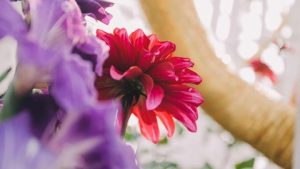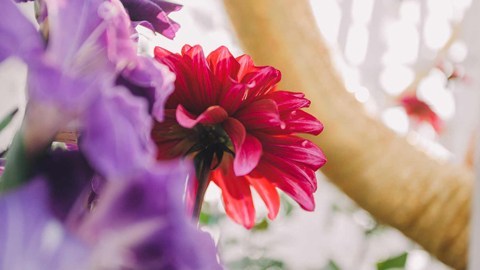“The earth laughs in flowers.” ―Ralph Waldo Emerson
I dread driving into Nairobi’s CBD. Parking lots are as rare as a hen’s teeth. So, when I received an invitation to attend an investor briefing breakfast in downtown, I immediately thought of parking woes. Naturally. Then I remembered that Sarova Stanley, the oldest hotel in the city and venue of the breakfast meeting, do have an excellent valet service. Phew.
The concierge service too is admirable. There are always a handful of smiling concierges at the door and in the lobby on hand to greet and welcome guests as they stream in. This morning, I was made to feel as though my visit was the best thing happening to them. Of course, this motion is repeated every time a guest arrives. It nonetheless still feels special.
The buffet breakfast was already laid out at the hallway leading to the Churchill Ballroom on the first floor, past the nineteenth century style Exchange Bar, where my very first TV interview was recorded several years ago.
 The six of us at our table represented diverse sectors: education, research, publishing, oil and gas, real estate and floriculture. We soon got into animated conversations. Johnny the floriculturist sat across me. Amid laughter talking about flowers and what they say, Johnny gave us some facts: Kenya exports up to 96% of all homegrown flowers, mainly to the EU, Japan and the US.
The six of us at our table represented diverse sectors: education, research, publishing, oil and gas, real estate and floriculture. We soon got into animated conversations. Johnny the floriculturist sat across me. Amid laughter talking about flowers and what they say, Johnny gave us some facts: Kenya exports up to 96% of all homegrown flowers, mainly to the EU, Japan and the US.
“Only about 4 percent is consumed locally?” we exclaimed, almost in chorus.
“Awkward,” I said.
“Yes. And most of the local consumption is for offices and events such as weddings and funerals,” Johnny explained.
“Retail?” Asha asked.
“A negligible percentage,” Johnny explained. “And guess who purchases most of it?” He paused, slowly looked round the table. Drama.
“Ladies, of course!” Emily chimed in.
“Right. Guys just aren’t buying flowers… except on special occasions,” Johnny said.
The ladies turned their gazes at me, probingly.
“Neither are the younger folks buying much,” Johnny added, as if coming to the rescue.
I asked the ladies what they thought of Johnny’s observation. That many Kenyan men are not in the habit of buying flowers.
“Of course, I even stopped expecting it!” Wambui was quick to say.
“My vases only refill when I buy the flowers myself,” Asha added.
Laughter.
“David,” Emily turned a curious gaze on me. “How often do you buy flowers?” she asked.
All eyes on shy me.
“Gee. Not as often as I used to,” I admitted.
“See!” Wambui exclaimed.
The emcee tapped the microphone. It was time to start the program.
At interludes, I had reflections of my recent visit to the Flower Dome at the Gardens by the Bay in Singapore. The Flower Dome is recorded in the Guinness World’s Records as the largest columnless glass greenhouse. Its bright vivid colors of pink, green, blue, white, yellow, purple are breathtaking, with the beautiful flowers bringing an atmosphere of spring, happiness, and even a sense of emotional wellbeing.
Later, pondering on the discussion around the table, images of excited smiles and extraordinary delight shown by people I’ve seen receiving flowers flashed through my mind. Perhaps we could improve the national mood if Kenya retained most of the flowers we produce? And especially if more of the flowers would be used to appreciate the living?
The language of flowers is a powerful language.
Copyright ©2015 David Waweru.





